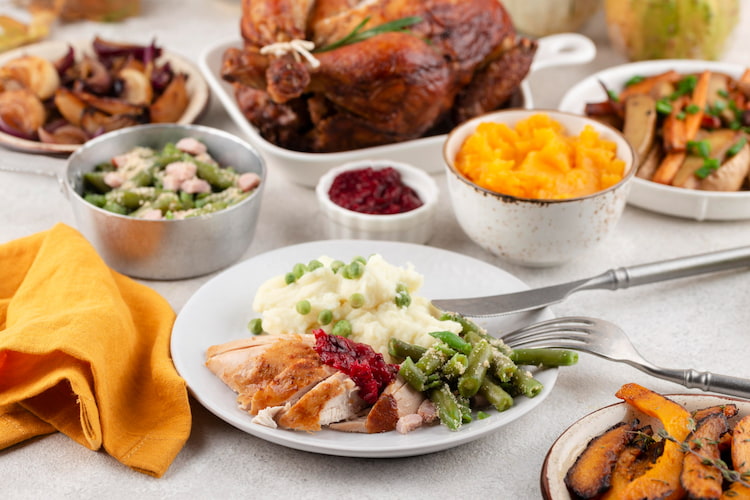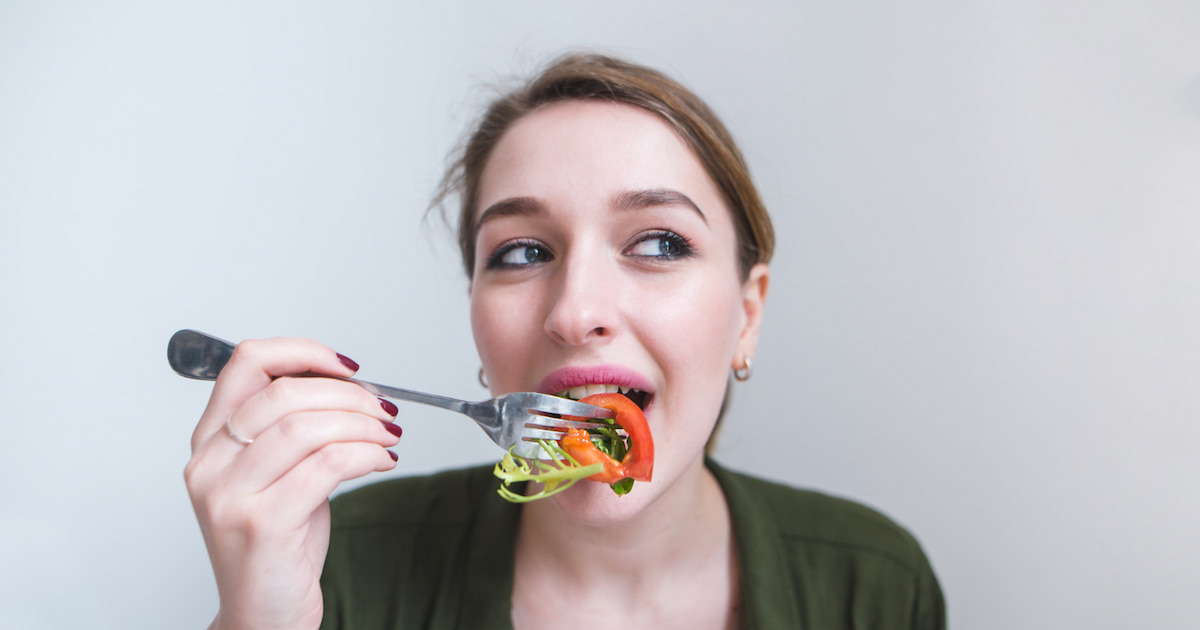Based on our experience, patients usually ask questions about foods to avoid and consume after tooth extraction. We explain to them that the wrong foods can cause damage, irritation, or bleeding to the extraction site. That’s why it’s important to choose soft foods to eat after wisdom tooth extraction and stick to a proper diet in the first few days. Patients should consume easy-to-chew foods, such as:
- Mashed potatoes
- Ygurt
- Smoothies
- Scrambled eggs
And other nutrients. In this blog, we will discuss what to eat after tooth extraction. Join us until the end!
What to Eat and Avoid After Tooth Extraction
We have created a chart to help you experience an effective and quick recovery. Let’s check it out:
| Foods to Eat | Benefits | Foods to Avoid |
| Mashed potatoes | Easy to prepare, easy to chew, high in energy | Crunchy foods and snacks |
| Yogurt | Rich in protein, helps digestion | Spicy foods |
| Smoothies | Full of vitamins, can be prepared based on your preferences | Nuts, rice, and small grains |
| Applesauce | Rich in vitamin C | Alcohol |
| Scrambled eggs | Rich in protein, soft texture | Straws( to prevent dry socket) |
| Broth-based soups | Full of nutrients | Hard bread, tough meats |
| Soft pasta | Easy to chew | Sticky snacks like candies |
| Oatmeal | Nutritious and filling | Hot drinks and foods |
| Pudding | Easy to chew and soft | Carbonated drinks |
Guarantee Your Smile with Professional Tooth Extraction at Eagle!
Need a skilled and professional dentist to experience a safe and comfortable tooth extraction? We are here for you! Our experts at Eagle Family Dentistry can provide top-quality extraction and help you have an effective and quick recovery.
Give us a call today!
Why Soft Foods Are Essential After Wisdom Tooth Extraction
After tooth extraction, we recommend our patients consume softer foods because their gums become more sensitive. Hard or crunchy foods can cause various problems, including:
- Irritating the extraction site
- increasing the risk of more serious issues like infection
- causing pain and chewing difficulties.
On the other hand, choosing easy-to-chew foods after a tooth extraction is a beneficial decision because:
- They provide essential nutrients to your body
- They prevent damage to the extraction site
- They reduce the risk of gum irritation and bleeding
Here is Mona’s experience after tooth extraction:
“ Although my dentist had given me aftercare tips, I ate a piece of toast on the second day after tooth extraction. I should admit that it wasn’t a very wise decision. My gums felt so sore. However, I immediately switched back to softer foods.”

Nutritional Needs for Recovery
Generally, your body needs different minerals and nutrients to remain healthy. Now, it is time to take a closer look at the best food sources for a speedy recovery:
- Protein plays a crucial role in the healing process and in restoring damaged tissues. It can be found in scrambled eggs and cottage cheese.
- Zinc is a key factor in healing wounds. Yogurt and mashed potatoes are important sources of zinc.
- Vitamin C protects your body against diseases and improves your immune system. We often recommend consuming smoothies with avocado and berries to increase the body’s vitamin C.

Tips for Eating and Drinking Post-Extraction
If you want to undergo a tooth extraction procedure, you should consider that following aftercare instructions is an essential part of the treatment and healing process. The right approach preserves your oral health and prevents further complications like infection or dry socket. Here, we have mentioned some tips to make eating and drinking safer after a tooth removal procedure.
- Eat slowly: Chew slowly and take small bites to prevent unnecessary pressure on the extraction site. Try to use the side of your mouth that was not affected by the extraction.
- Don’t use a straw: Using a straw can increase the risk of dislodging the blood clot that forms over the extraction area. It can cause more serious issues, like dry sockets. Dentists often recommend to drink from a cup to prevent damage.
- Consume lukewarm or cold foods: Using hot foods and drinks may lead to gum bleeding and irritation. Instead, you can eat foods and snacks such as smoothies, puddings, and yogurt.
- Avoid alcohol: Based on an article on Medical News Today, drinking alcohol can delay recovery, thinning your blood when it needs to form a clot in the empty socket.
Looking for professional tooth removal? You can count on our experts at Eagle Family Dentistry. We value updating our knowledge and using modern tools and techniques to make your treatment procedure more comfortable and stress-free. Take your first step towards a healthier life and a confident smile with us.
FAQs
-
How soon can I start eating soft foods after wisdom tooth extraction?
You can start eating soft foods within a few hours after surgery, once the numbness wears off. Stick to foods like mashed potatoes, yogurt, applesauce, and pudding to avoid irritating the extraction site.
-
What happens if I accidentally eat hard food after a wisdom tooth extraction?
This can put pressure on the healing site, potentially causing pain, bleeding, or even dislodging the protective blood clot, which can lead to dry socket. If you accidentally eat something hard, rinse your mouth gently with warm salt water and monitor for any discomfort.
-
Are there any dairy-based soft foods I should avoid post-surgery?
While yogurt, cottage cheese, and milkshakes are generally safe, some dentists recommend avoiding dairy if it causes mucus buildup, which can lead to discomfort. Additionally, dairy products may interfere with antibiotics, so check with your dentist if you’re on medication.








